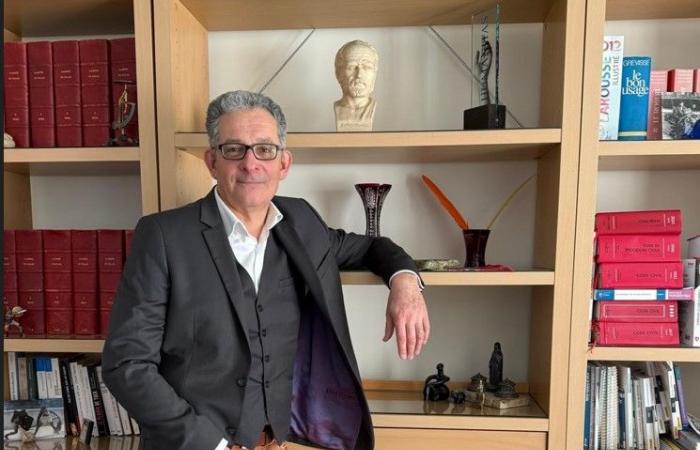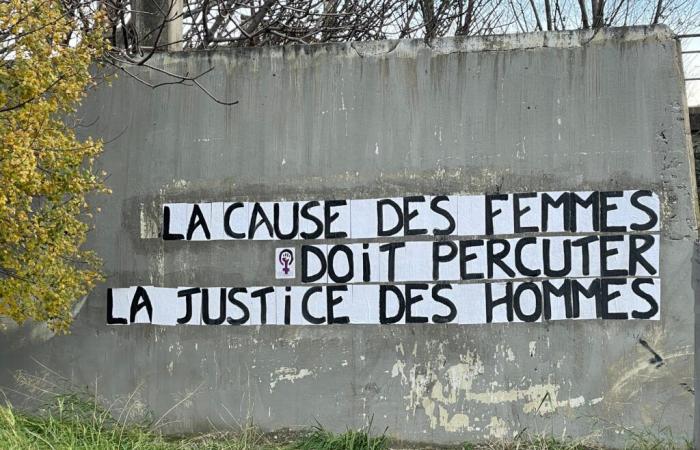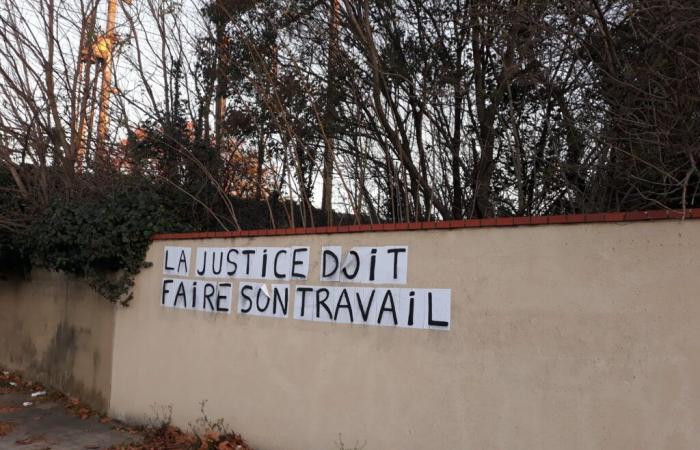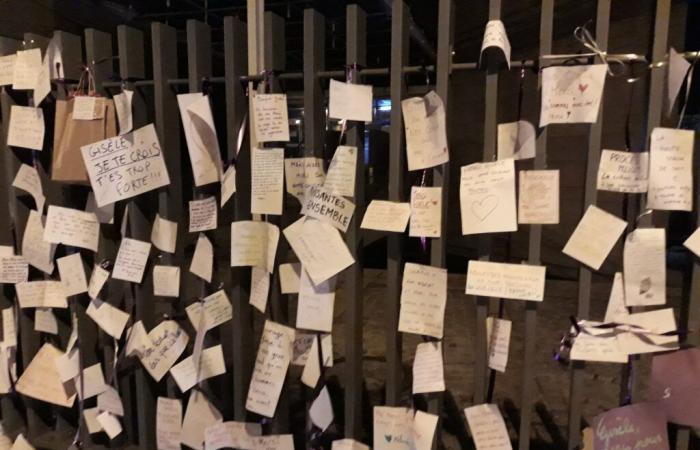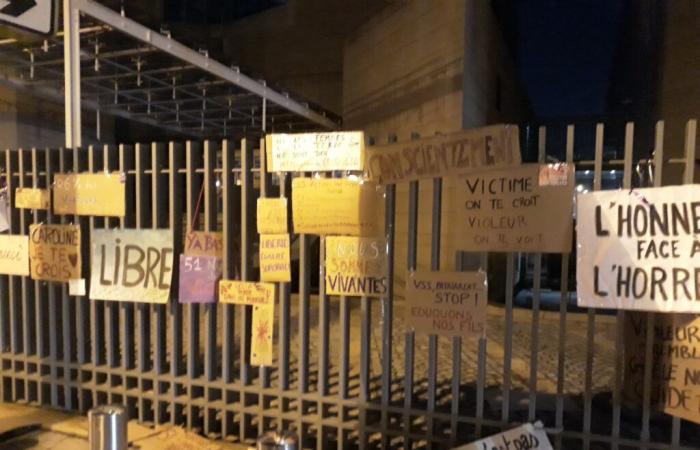« I see a world being built where that’s not enough to say, alas! that man cannot live there; he will be able to live there but on the condition of being less and less of a man “. Georges Bernanos
It was in 2013 that Alexandre Postel published “ A hidden man “. He tells the story of Damien North, a discreet professor of philosophy at the university one day accused of having downloaded pedophile images onto his computer. Knowing he is innocent, he does not react and then falls into a formidable spiral, “ each remembering a gesture, a word which, interpreted in the light of the terrible accusation, becomes so much evidence against us “. On page twenty-seven, the author writes: “ Between the false and the true, there is a space which is that of the appearance of the true. It is the space of imposture, of seduction, of opinion, of stupidity too. The appearance of truth is the nightmare of truth. »
On September 2, 2024, the trial of the Pelicot case opened before the Criminal Court of Vaucluse. This while the cycle of pleadings by the defense lawyers ended on December 13; by that of my intrepid and fiery colleague Nadia El Bouroumi. During the more than three months of this hearing (unusual in terms of the personality of the main accused and the number of his co-defendants; but certainly not historic in the sense that they continued to chant it for months), the “feminists »(relayed without the slightest hindsight by a significant part of the national and international media; but very little by public opinion and by political personnel) have continued to claim that “ masculinity was at the heart of this trial » ; that he was “ that of violence against all women » ; that of their “ systemic nature » ; in short, that he was the “ rape culture trial » which would exist, according to them, everywhere in the country.
“The appearance of truth is the nightmare of truth. »
In order to ensure that this would indeed be the case, the civil party immediately refused the closed session and, beyond that, successfully demanded that the Court publicly broadcast almost all of the videos. shot by her ex-husband. So that everyone could witness, delayed but to satiety, the atrocious sexual acts performed on her as, ignominies of ignominies, she slept; as a result of having been sedated, for years, by the very man who was then still her husband and is still the father of her children. It is clear that the strategy worked. Since Madame Pélicot not only made her entry, at the beginning of this month, into the list of the hundred most influential women of the year; but still managed to convince the prosecution to the point that the latter requested, against all of Mr. Pélicot’s co-defendants, very excessive sentences compared to what is usually requested to punish comparable acts.
This, at the end of an indictment as express (on the merits) as it was surprising to have been carried out, by two mixed voices, not exactly with regard to the law in force (as it should have been done. In criminal matters , the law is – for how much longer? – subject to strict interpretation), but having invoked, even if implicitly, a virtual law: the one which Madame Pélicot and her supporters demand to be adopted without further delay. In France. Supporters who asserted their demands on the city walls, on the walls of the houses located near the Palace of Justice and even on the gates of the latter!
In violation of article 434-8 of the Penal Code. But without the Prosecutor’s Office being moved. Since it was at the initiative of the defense lawyers that the first, in time, of these offenses was put to an end (Removal of posters ordering the Court: “ Twenty years for everyone »).
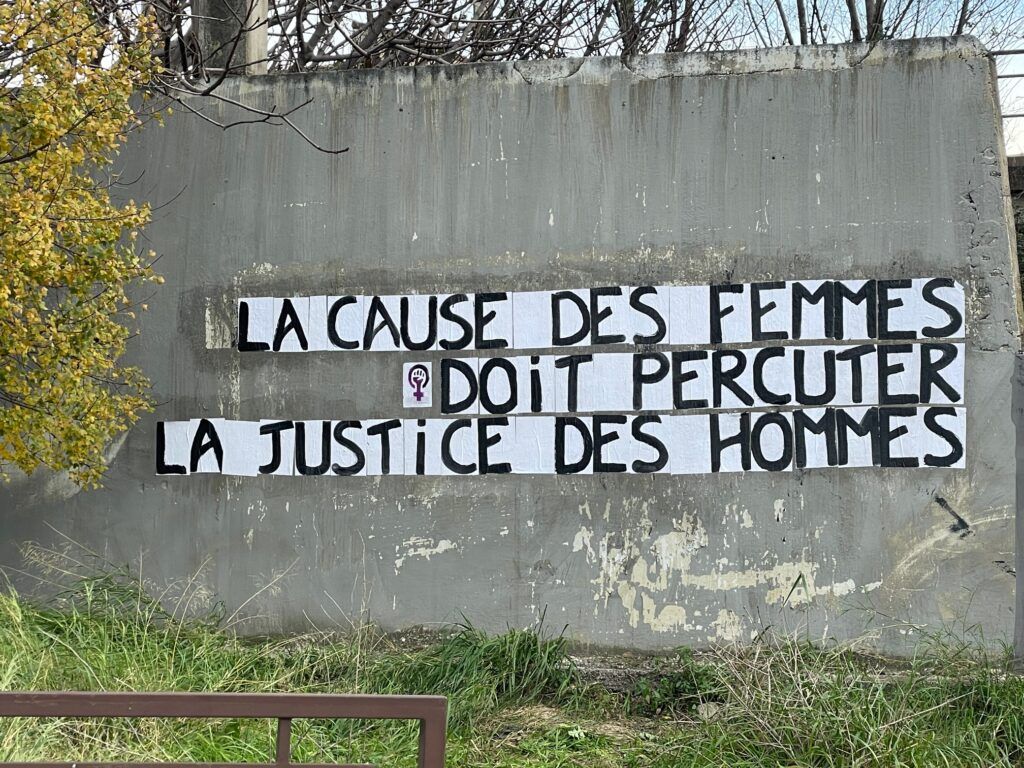
Defense lawyers, many of whom were threatened, mocked and harassed. Firstly, for having dared to question the iconic, quickly becoming untouchable, civil party at the hearing, whom they would have, in doing so, contributed to humiliating a little more. Secondly, to have the indecency to plead, that the situation of each of the accused in this trial had to be assessed in the light of article 121-3 of the Penal Code.
Text which states – it is nevertheless obvious in Reason – that “ there is no crime or offense without the intention to commit it “. Which means that we cannot deprive someone of their freedom without being certain that they not only had the will to infringe the criminal prohibition; but also and above all, the awareness of having passed this prohibition. Which does not mean, in the event that it acquits some of the accused, that the Criminal Court would deny, however, the sexual acts committed by them on Madame Pélicot, against her will; therefore, that the latter would not have been a (civilian) victim of their infamous actions committed against her.
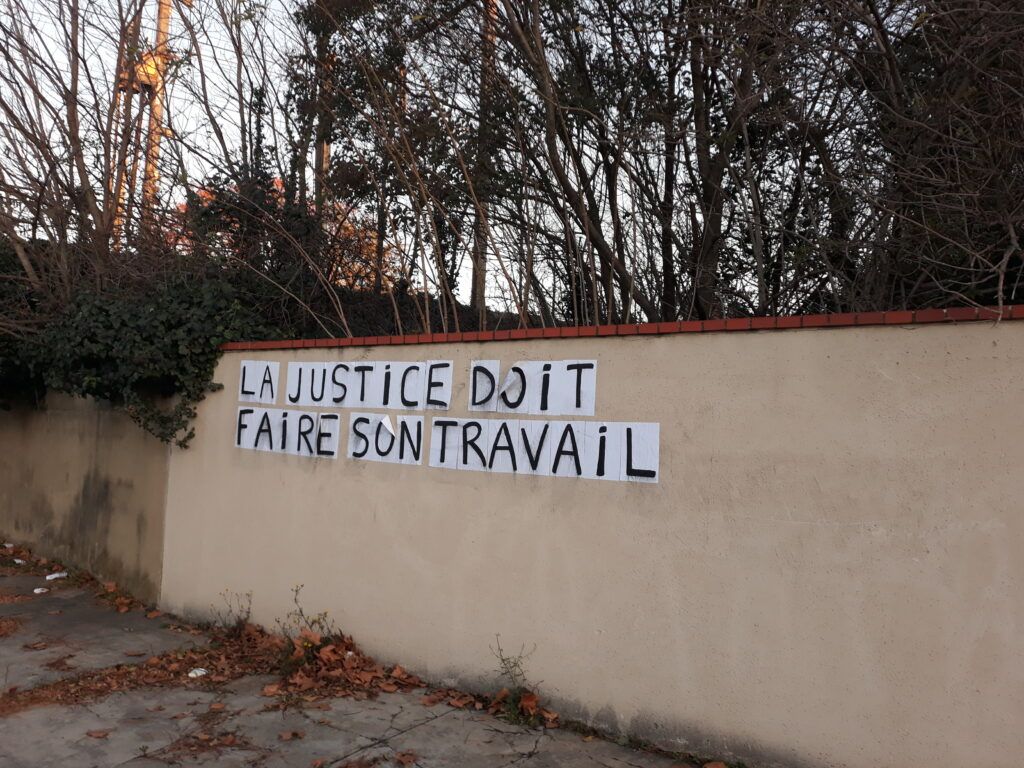
Copyright Tanguy Barthouil
“When in doubt, freedom. »
« In doubt, liberty » (« When in doubt, freedom”). This is the rule. Since ancient times. And this must remain the rule in the future. For all those who are brought to justice; even under accusations of rape and/or sexual assault. To defend, contrary to what so many think without even having thought about it, is not to lie (lying does not pay more in court than in life in general).
No ! To defend is to try to convince the judges of the objective existence of a doubt (provided that there is one) or, when this path is closed because the facts are incontestable and/or because the The accused recognized them, this explains, as best as possible, how he could get there. On purpose, judges pronounce the sentence exactly adapted to the situation presented to them.
Establish a contradictory debate
To hope to achieve a prodigious result. Let justice be said! Which is the fourth of the cardinal virtues (defined by Plato, studied by Aristotle, then taken up by the Christian tradition, after Strength, Prudence and Temperance). There has existed, from time immemorial, a corpus of rules (criminal procedure) oriented towards a single goal: to enable the establishment of in fine a contradictory, egalitarian debate, without concessions and therefore could not be more loyal, before the judge and for his exclusive attention. “ Impartial and disinterested third party» (Eth. NicV, 4) the latter, remaining silent, sees and listens to all the participants in the trial.
Not only the witnesses and the experts, not only the civil party, assisted by its Council (of which we must never lose sight of the fact that it is not the object, and therefore must not be the center, of the criminal trial – which is exclusively between the accuser and the accused); but also the Prosecutor’s Office in all its questions, observations, objections, and indictment, then, finally, the accused and his lawyer. Which ones speak last. After ordering the proceedings to be closed, the judge retires. To secretly, with good purpose, protect one’s independence – deliberate. Before rendering a verdict.
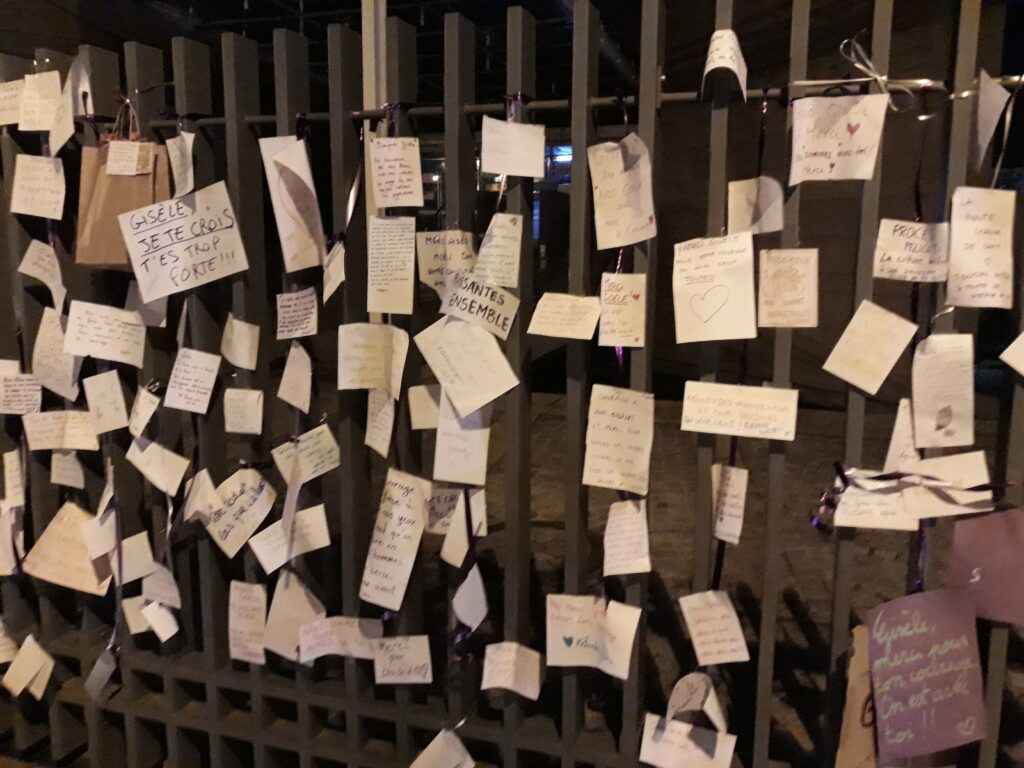
In what state of mind should he do it? In that which is ordered by article 353 of the Code of Criminal Procedure. Text, sublime and apparently written by Stendhal, which provides this in paragraph 2: “ Subject to the requirement to provide reasons for the decision, the law does not ask each of the judges and jurors making up the Assize Court to account for the means by which they were convinced, it does not prescribe to them rules by which they must follow particularly depend on the fullness and sufficiency of a proof; it prescribes them to question themselves, in silence and recollection and to seek, in the sincerity of their conscience, what impression the evidence brought against the accused, and the means of his defense. » The law only asks them this single question, which contains the full extent of their duties: “Do you have a deep conviction? ».
This is what, since Rome, thework of justice. The collective work of Justice which can alone guarantee our fundamental freedoms; among which is, first and foremost, the presumption of innocence. This is what you, “feminists”, blinded as you are by your ideology, are going to destroy without even being aware of it. The work of justice, people of dress, is the treasure that we received from those who trained us in the universities and that we have the signal duty to defend, together. Against all odds if necessary. To prevent the country from sinking into arbitrariness.
We have known for decades that we can get anything voted on in parliament. It is therefore possible that one day, the latter, arguing in particular (which is however false) that we could not, in the state of current positive law, punish the rape of a victim in a state of astonishment, adopts, like Germany, Spain or Sweden, a law which would require that anyone accused of rape or sexual assault provide positive proof (verbal, physical!?) of the consent given to them by their accuser concomitantly with the sexual relationship in retrospect contested. Maelstrom then assured. Because of its undoubtedly devastating effects on the very balance of society; whose trust, essential between the members, would be from the beginning and forever undermined.
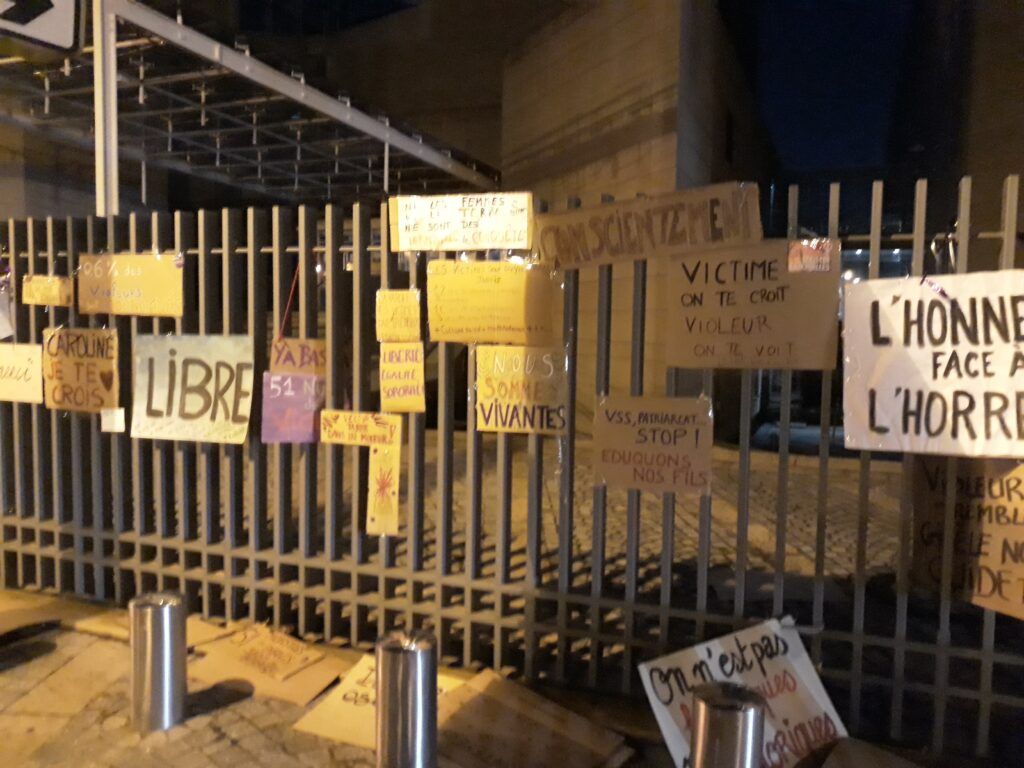
« Laws are not pure acts of power; they are acts of wisdom, justice and reason. The legislator exercises less authority than a priesthood. He must not lose sight (…) that we must be sober about new developments in matters of legislation, because if it is possible, in a new institution, to calculate the advantages that the theory offers us, it is not possible to do so. is not to know all the disadvantages that practice alone can discover; that we must leave the good, if we are in doubt about the best; that in correcting an abuse, we must still see the dangers of the correction itself », wrote Portalis, in his Preliminary Speech of the First Draft of the Civil Code, delivered on January 2, 1801. It is appropriate to remind us today, because the argument, timeless, is of course also valid for the legislator criminal.
“Laws are not pure acts of power; they are acts of wisdom, justice and reason. »
On February 24, 2025, the four-month trial of ex-surgeon Joël Le Scouarnec will begin in Vannes; accused of 300 rapes and sexual assaults carried out over decades, mainly against minors. I dare to believe that the cause of these victims will mobilize at least as much (but without vociferation and demand for condemnation a priori) than that of Madame Pélicot. Because when a ship is wrecked, as lifeboats are launched in panic, we do not hear the screams: Women first! women first! » ; more ” Women and the children First of all ! Women and the children First of all« .
« They want to be free and don’t know how to be fair » lamented Abbot Sieyès during his Speech to the Constituent Assembly of August 10, 1789. Worth thinking about, I think.
Tanguy Barthouil, lawyer of the Avignon Bar

